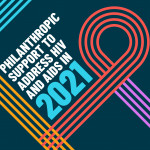A pair of Phase I studies conducted among HIV-negative individuals found that ViiV Healthcare and GlaxoSmithKline’s jointly developed maturation inhibitor antiretroviral GSK3640254 is safe and tolerable, the National AIDS Treatment Advocacy Project (NATAP) reports.
Researchers presented the studies at the 20thInternational Workshop of Clinical Pharmacology of HIV, Hepatitis & Other Antiviral Drugs in Noordwijk, the Netherlands.
One study randomized participants to receive GSK3640254 or a placebo on a three-to-one basis, providing them with ascending doses of the drug, ranging between 1 and 700 milligrams, either once (among 20 men) or multiple times (among 58 men) each day.
There were no deaths or serious adverse health events in this study.
The second study, which included 14 participants, assessed the metabolization of the drug and its ultimate availability in the body, looking at two salt forms of GSK3640254.
Between both studies, there were nine adverse health events related to GSK3640254. Four adverse health events led participants to discontinue the study, including a grade 1 maculopapular rash (which is usually driven by an infection and causes flat and raised lesions on the skin) that was attributed to the study drug.
The most frequent adverse health events in the first study were headache, contact dermatitis due to ECG electrodes, diarrhea, dizziness, contusion (bruising), fatigue and back pain.
The drug was absorbed slowly, taking a median of about four hours to reach a peak level. GSK3640254’s half-life of about 24 hours suggests it could be taken daily.
In the second study, seven participants experienced 11 adverse health events between them, all of which were grade 1. Two of the events, both headache, were related to the drug. The two GSK3640254 salt forms were comparably metabolized.
Neither of the studies saw significant shifts in vital signs, ECG parameters or lab test results.
ViiV and GSK have launched a Phase II study of the mesylate salt capsule formulation of GSK3640254 among people with HIV who are new to ARVs.
To read the NATAP report, click here.







1 Comment
1 Comment